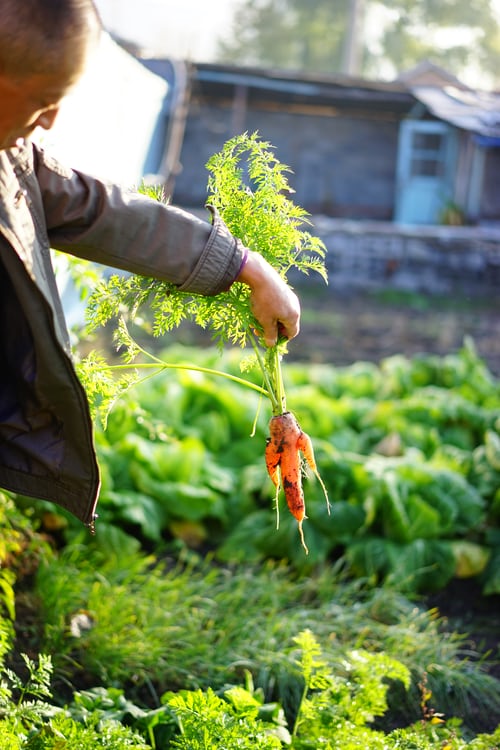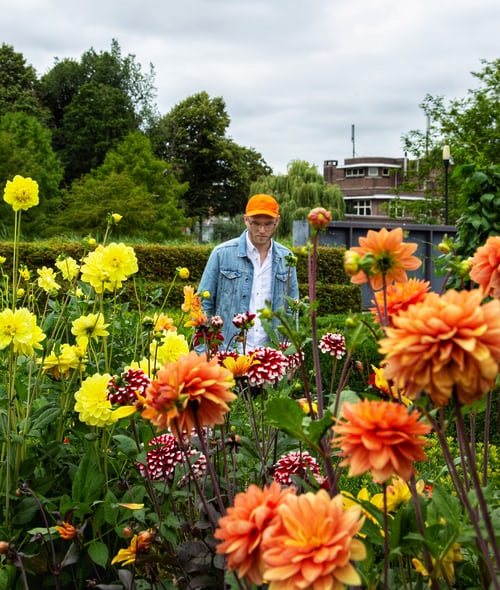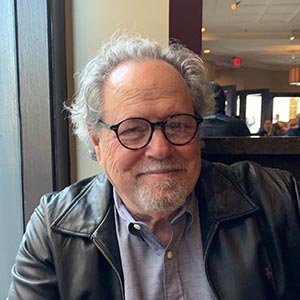
Science and Beauty From the Garden
The dichotomy of gardening
It has always occurred to me that there is a sort of fundamental dichotomy in gardening. On one hand gardening takes work, energy, perseverance, and money. On the other hand, it is relaxing, fulfilling and provides a sense of accomplishment. I am of an age where spending time on my hands and knees planting spring bulbs is taxing. Carrying bags of compost and potting soil taps into my back and knees. After a day in the garden, I need a hot bath and time to relax my aging muscles.
So, what is it that keeps me coming back and putting more effort into my small plot of land? There is not always an immediate sense of satisfaction. Bulbs takes months to come up and flower. Bare root roses take time to grow and bloom. Of course, there is the ongoing and sometimes time-consuming tasks of controlling weeds and pests. Unless I’m planting a bed of annuals, I’m not likely to get immediate gratification.
Certainly, there is a sense of accomplishment at the end of a day in the garden that can reinforce our hard work behavior. Of course, there is the satisfaction of knowing that in the not too distant future there will be beauty, but I think there is more to it than that. In my career I was a researcher and a teacher. My area of expertise is psychology. Since I have retired, I have more leisure time on my hands so I turned to gardening as a fulfilling pastime. I signed up and went through the Master Gardener training with the University of California Cooperative Extension. I thought I might be able to combine my career knowledge with my developing knowledge of gardening. I started looking at the psychological impact gardening has on us as humans and how we can use gardening as a way to recover from stress, help us heal, relieve our depression, and enhance our sense of wellbeing.
This is your brain on gardening
There are some interesting changes that occur in our brains when we spend time in the garden. In a well-controlled, peer reviewed study that I found quite interesting, experimenters used thirty gardeners to see if gardening resulted in reduced stress and an increased sense of wellbeing. The researchers measured levels of cortisol in the saliva of a group of 30 gardeners (average age of 58) after they were required to take a stress inducing, computer generated test. Cortisol is your body’s main stress hormone, and it’s associated with your fight or flight response. It is generated by your adrenal glands and is regulated by the hypothalamus and pituitary gland in your brain. High levels of cortisol are associated with a bunch of unhealthy conditions including: anxiety, depression, headaches, digestion problems, sleeping problems, weight gain and memory and concentration problems.
Immediately after the test they sampled each person’s cortisol at its highest level, then they sent them to participate in one of two activities. Half of the subjects stayed indoors and read books, while the other group went outside and worked in a garden. After 30 minutes of engaging in these activities, the researchers took another sample of each subject’s cortisol level. They found that while both groups had lower levels of cortisol, indicating a recovery from stress, the subjects that worked in the garden had significantly lower levels or cortisol in their saliva than did the subjects that read. Also, the subjects from the gardening group reported a greater sense of wellbeing than did the book reading group.
This study shows one of the many values of gardening. We can use our time in the garden to help us recover from stressful events and experience a sense of wellbeing.
Healing effects of gardening
Over the past few decades there has been an important movement toward using gardens for therapeutic and rehabilitative purposes. Having a background in clinical psychology, I was fascinated when I discovered the field of horticultural therapy. This is an area within clinical psychology that uses gardens as an intervention for therapeutic and rehabilitative purposes. Gardens have been shown to both improve the social psychological and physical wellbeing of older adults and help us overcome the depression that is sometimes associated with aging.
The healing powers of gardens and nature in general, have also been shown to have a positive effect on people recovering from injury. A group of researchers followed 46 post-surgical patients that were assigned to one of two groups. Half of the patients recovered in rooms that had window views that faced a brick wall and the other half of the group had windows that faced a small stand of deciduous trees. The group that had the view of the trees spent less postoperative time in the hospital, received fewer negative evaluations from the nursing staff, and took fewer strong pain medications than did the patients who viewed the brick wall from their room.
 Research has also shown that exposure to natural settings can make people feel better when compared to people exposed to urban scenes that lack natural elements. Compared to the urban scenes, people exposed to nature scenes had an increase in positive affect including feelings of affection, friendliness, playfulness, and elation.
Research has also shown that exposure to natural settings can make people feel better when compared to people exposed to urban scenes that lack natural elements. Compared to the urban scenes, people exposed to nature scenes had an increase in positive affect including feelings of affection, friendliness, playfulness, and elation.
We can see the profound importance of gardens when we look back in history. The Koran and the Bible both refer to the garden of Eden as being the wellspring of humankind; an idyllic world of peace and harmony. In the Persian culture the idea of a garden of paradise goes back 6000 years. Even the Neanderthals valued the beauty and serenity of flowers. In graves dated back as far as 60,000 years ago, there was evidence of cornflowers, hyacinth, and yarrow being placed around bodies at burial.
Gardens can heal body and spirit and have subtle yet profound effects on us as we age and our lifestyles change. When we move away from the challenges of a fulltime career and toward a more leisurely life, retirees long for leisure activities that offer the possibility of engagement, self-fulfillment, and satisfaction. Gardening is one such activity. We can improve our mood and sense of well-being through the power of beauty in nature.
Carol Cumes, in her book Chakra Gardens, describes our wholistic relationship to gardens:
In the Andes mother earth is referred to as Pachamama. Throughout the world, healers, shamans and sages hear Pachamama’s cry to restore the planet to balance. ‘First heal the world, by healing yourself,’ She whispers, while extending an invitation to mankind to return to Her gardens. Go where nature draws you. Breath in the energies. Inhale the fragrant perfumes. Listen deeply, with your eyes closed, as Pachamama works with you to provide all you need.
There is much made in the literature about Zen gardens–gardens specifically designed to give us a sense of wellbeing and to focus our healing energies. I, however, think that we do not need a specifically designed garden to give us peace of mind, a sense of wellbeing, and soothing comfort from the stress of day-to-day life. Being in any garden, being with the beauty of nature, and touching, feeling, and smelling all that the garden holds will heal us. Even if you don’t have a yard, you can make your own garden space with a potted plant in a window or for that matter you can build your own Zen garden in the smallest of spaces. The important thing is to be with the beauty of nature and allow it to restore us.
 Ed Lopez, PhD, Love of Aging’s Science Editor is a retired organizational psychologist, university instructor and researcher. His research has been presented at international conferences and published in a peer reviewed journal. Ed is also a decorated Army veteran who served in Vietnam.
Ed Lopez, PhD, Love of Aging’s Science Editor is a retired organizational psychologist, university instructor and researcher. His research has been presented at international conferences and published in a peer reviewed journal. Ed is also a decorated Army veteran who served in Vietnam.

